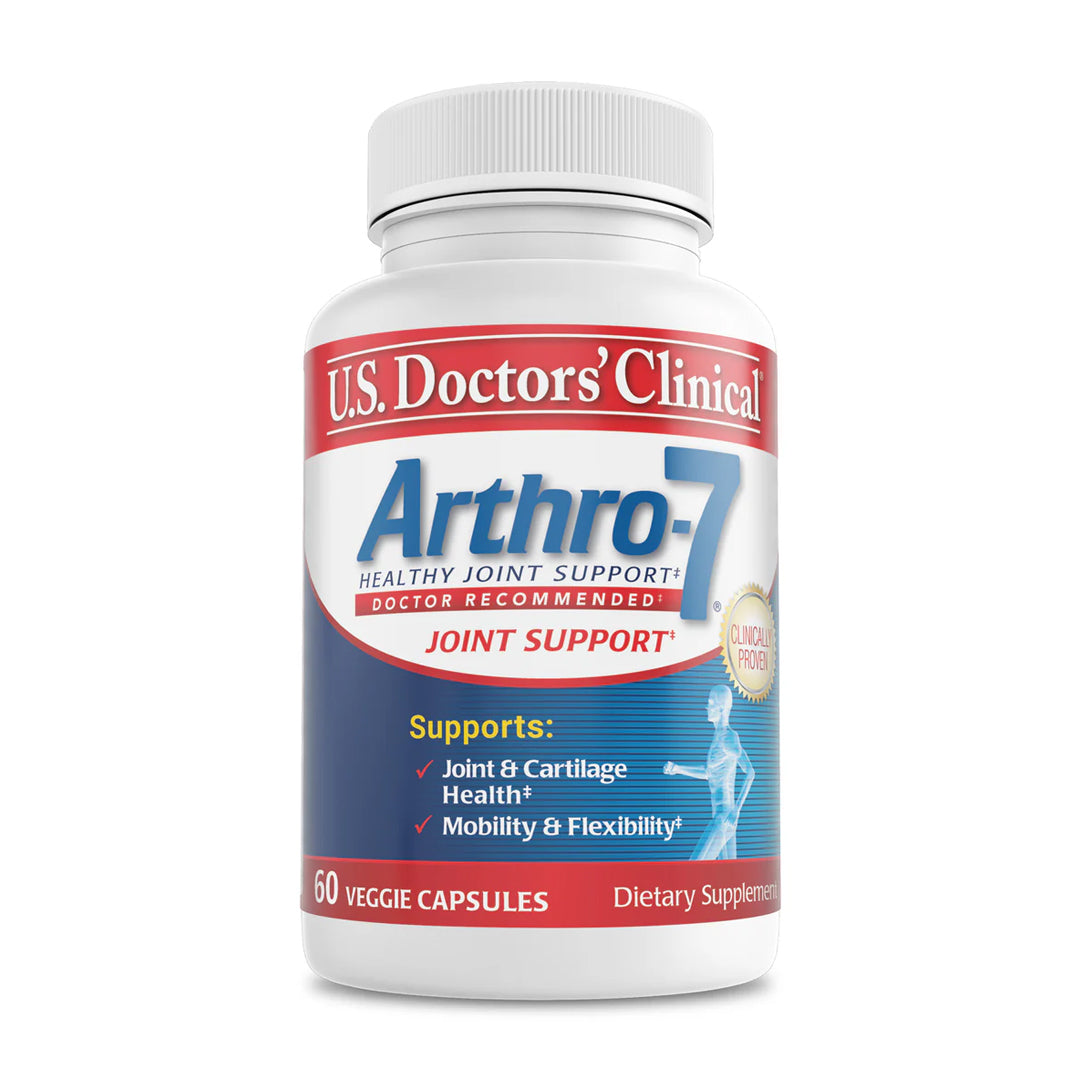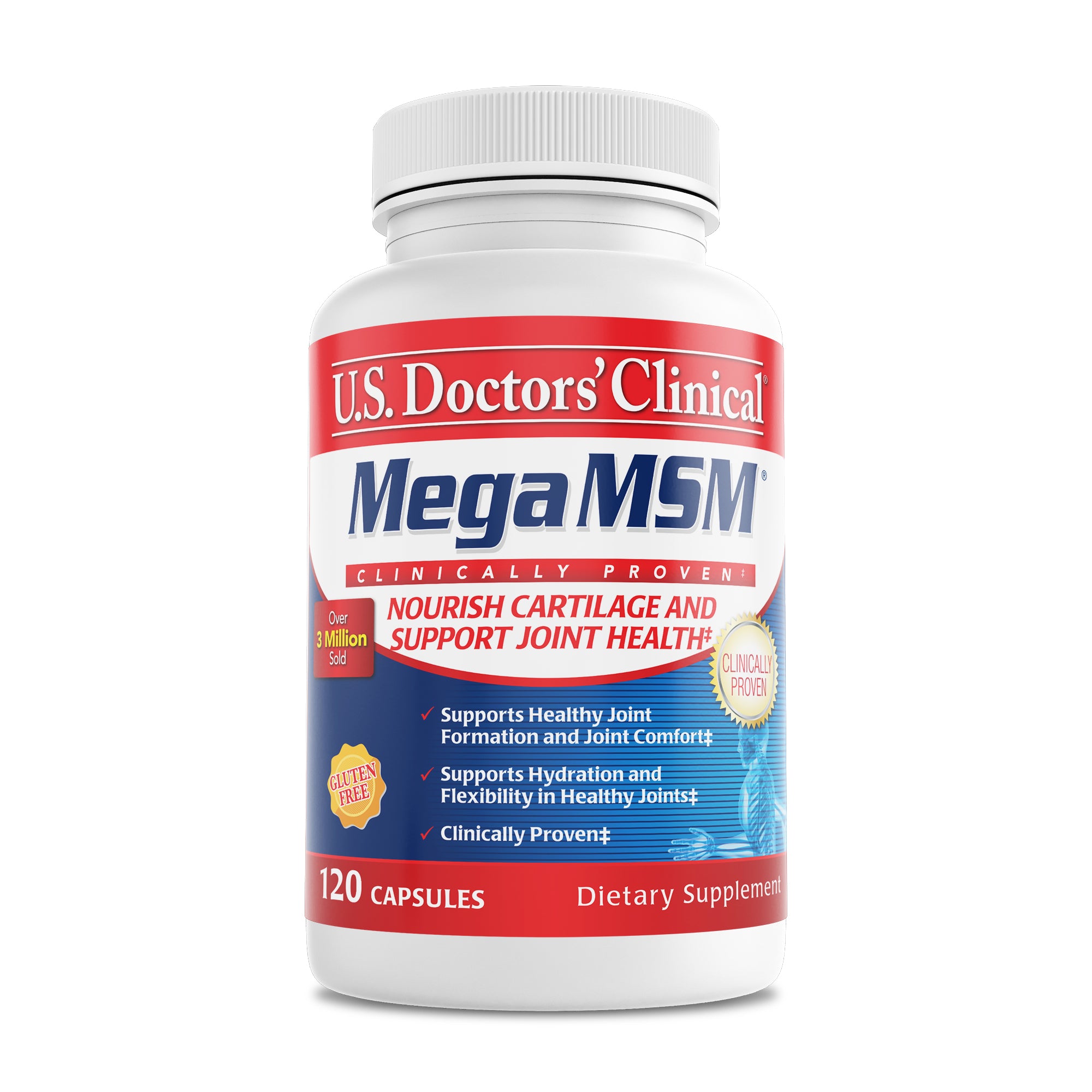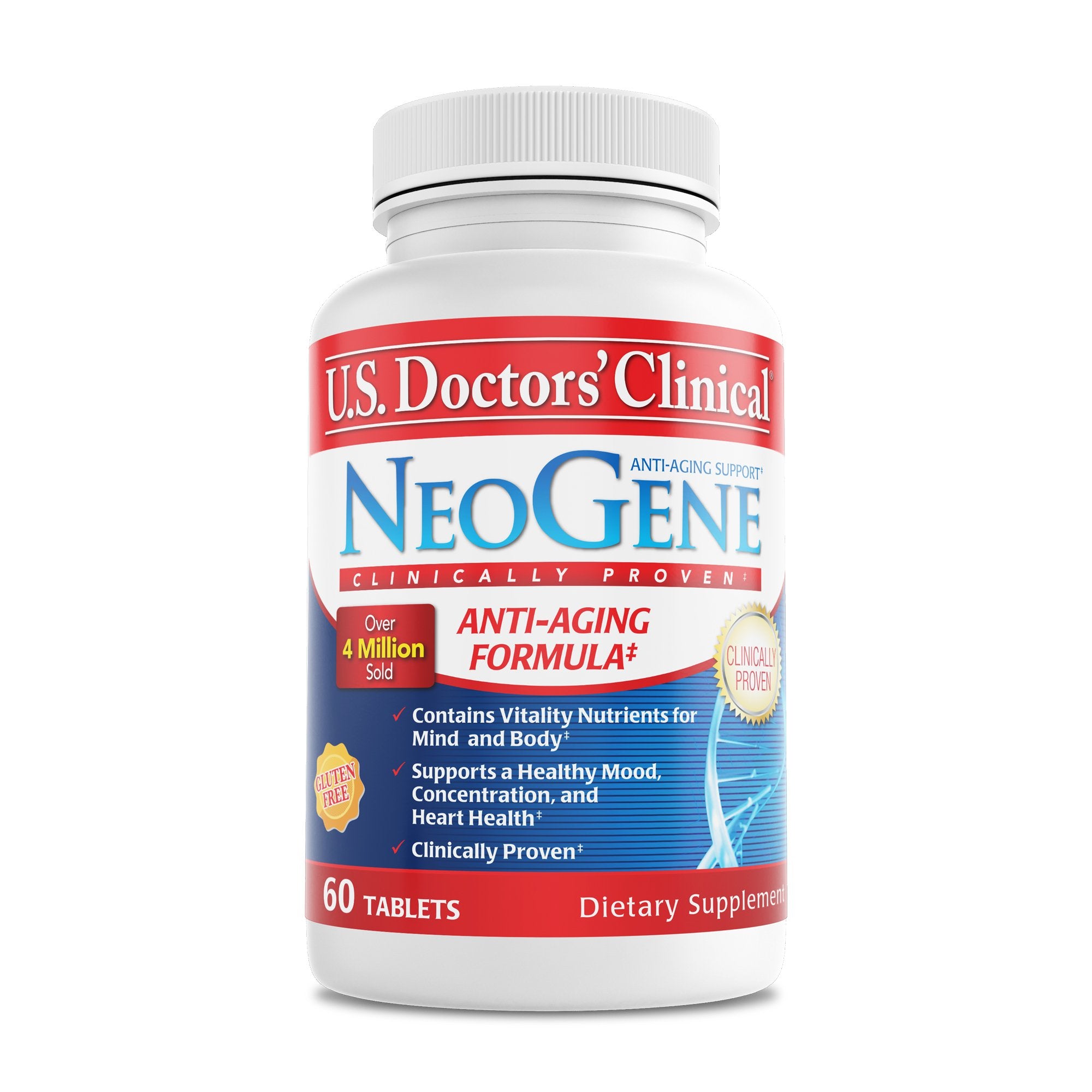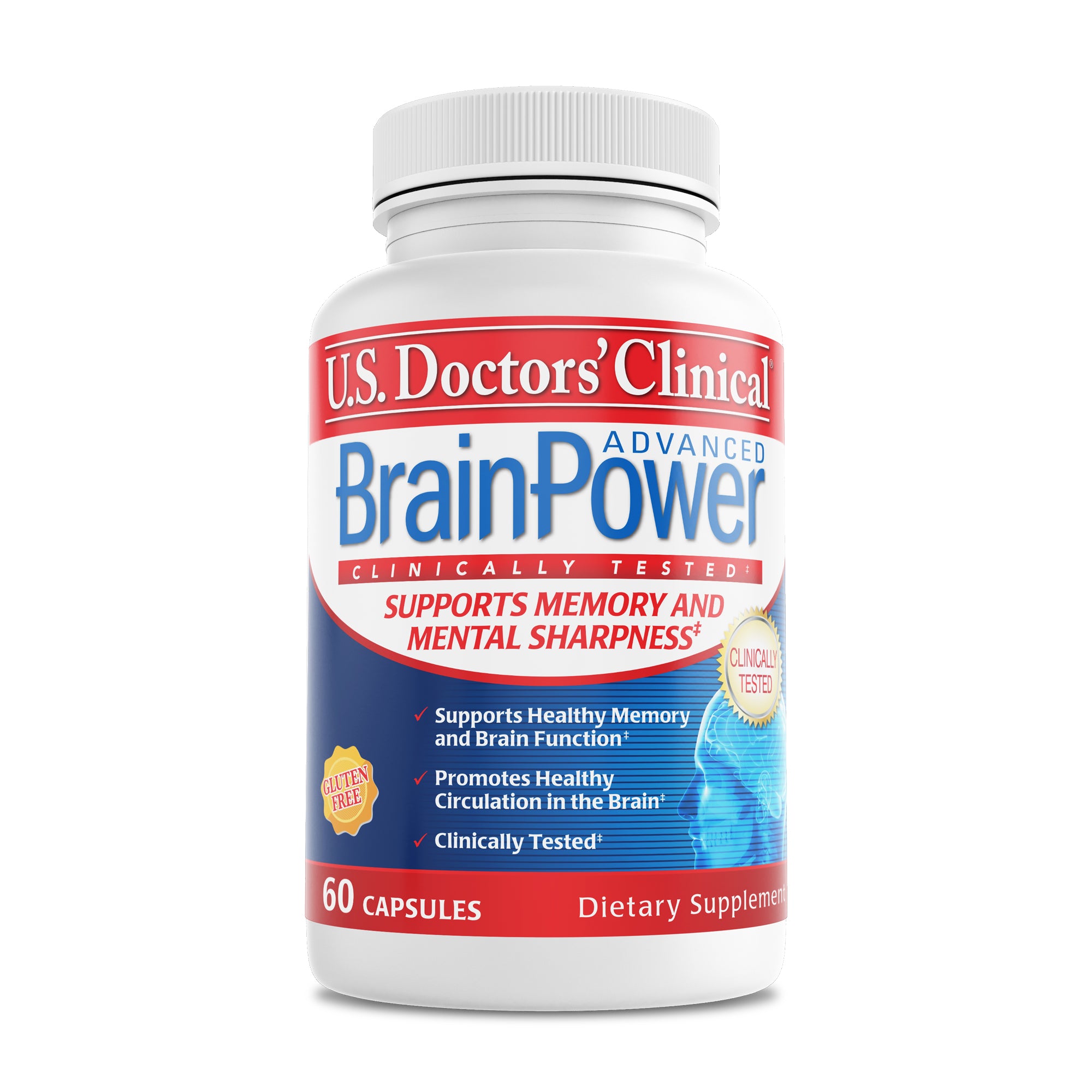Diet and Exercise For Better Brain Health
As scientists and researchers learn more about the brain and the causes of depression, natural mood boosters gain traction as possible alternatives to pharmaceutical antidepressants with harsh side effects and lengthy withdrawal periods. U.S. Doctors’ Clinical Serezec Plus is one such mood-booster that can offer continual support for proper brain and thyroid function, normal hormone levels, restful sleep, and energy production—without negative residual effects.* Formulated to nourish your body and promote your health and vitality goals, Serezec Plus is most effective when paired with a healthy diet and regular exercise. But which foods support brain health, and what kind of exercise offers mood benefits?
You Are What You Eat
Did you know that roughly 60% of your brain is composed of fat? Half of that fat is omega-3 fatty acids, the kind found in flaxseeds and fatty fish. Those acids are used by the brain to build different types of cells, and are essential for learning processes and storing memories.1
Because your body uses materials in the foods you eat to build new brain and nerve cells, what you eat has a direct effect on your brain’s structure and function.2 High-quality, nutrient-dense foods provide nourishment for the brain and help protect it from the damage of oxidative stress, while diets that contain large amounts of refined sugar have been linked to poor insulin regulation, inflammation, impaired brain function, and a negative impact on mood.
While serotonin is a neurotransmitter, it’s mostly produced in the gastrointestinal tract, where approximately 100 million nerve cells live. Your digestive system doesn’t just process food, then—it also houses the enteric nervous system, and plays a role in the regulation of your emotions. The bacteria in your intestinal microbiome influence the function and production of serotonin and other neurotransmitters.2
People who eat more traditional diets, like those of Mediterranean and Japanese cultures, have demonstrated a 25-35% lower risk of depression than those who follow typical Western diet patterns. Scientists attribute this differential to the inclusion of more vegetables, fruits, unprocessed grains, and fish and seafood in Mediterranean and Japanese diets, as well as the minimal consumption of lean meats and dairy and the avoidance of processed food and refined sugar.2 One study reported a significant drop in the depression symptoms of its participants after they followed a Mediterranean-style diet for just three weeks.3

The results of another study suggested that a more nutritious diet could benefit people even in the middle of a depressive episode. Over the course of 12 weeks, half of the study’s participants were instructed by a dietitian to follow a diet rich in whole grains, fruit and vegetables, legumes, low-fat dairy, nuts, fish, lean red meat, chicken, eggs, and olive oil, with little to no consumption of sweets, refined grains, fried and fast food, processed meats, and sugary drinks.4 The other half received regular support through talk therapy, but were given no nutritional guidance. At the end of the 12-week period, the first group experienced a much greater reduction in symptoms of depression and anxiety.
Beneficial Foods For Better Brain Function
These studies, among others, led to the creation of the MIND diet, a combination of the DASH diet and the Mediterranean diet. It prioritizes foods with demonstrated brain benefits, like dark leafy green vegetables, berries, nuts, and olive oil; suggests including at least one serving of fatty fish each week and drinking red wine sparingly, and recommends limiting the consumption of red meat.
Research indicates that leafy greens like kale, collard greens, spinach, and lettuce may lower the risk of dementia and cognitive decline, given their high folate, vitamin E, carotenoid, and flavonoid content. Berries like blueberries and strawberries also contain high levels of flavonoids and anthocyanins, and may help to slow the loss of brain function and improve communication between neurons.5
High levels of omega-3 fatty acids in the brain can increase blood flow, improving cognition and providing structural support to neurons. Oily fish like salmon, mackerel, tuna, and sardines are good sources of omega-3s.6 Resveratrol, a potent antioxidant found in the skin of red grapes and present in red wine, may reduce cell damage caused by free radicals to slow aging and prevent the buildup of harmful plaques in the brain.7
The caffeine found in coffee and green tea can boost brain activity and enhance concentration. Green tea offers the added benefits of L-theanine, polyphenols, and antioxidants that can help lower anxiety levels and may improve memory, defend the brain against mental decline, and reduce the risk of diseases like Alzheimer’s and Parkinson’s.
The curcumin found in turmeric has demonstrated memory-improving benefits, and can also increase serotonin and dopamine levels for a more positive mood as well as lowering inflammation. It promotes brain-derived neurotrophic factor, which enables brain cell growth, and may play a role in slowing mental decline related to age. Curcumin isn’t easily absorbed by the body, so make sure to pair turmeric with black pepper to reap the benefits!
Broccoli contains high levels of vitamin K, which has been linked to improved memory in older adults. In addition to antioxidants, pumpkin seeds are good sources of magnesium, iron, zinc, and copper to support healthy mineral levels and promote normal brain function. The flavonoids found in dark chocolate may enhance memory and combat cognitive decline. Nuts like walnuts, almonds, and hazelnuts may also provide this benefit, given their healthy fat, antioxidant, and vitamin E content.
The monounsaturated fat content of avocados has demonstrated positive effects on blood pressure levels. High blood pressure contributes to mental decline, which means avocados may indirectly help prevent the loss of cognitive function.6 Rich in B vitamins, whole grains like oats, barley, and quinoa may help lower inflammation in the brain, encouraging memory preservation.7
A single orange contains the daily recommended amount of vitamin C, which can protect against Alzheimer’s disease. The choline found in eggs has been linked to increased memory capacity and mental function. B vitamins and folate may also help protect the brain against dementia and support normal chemical and blood sugar levels.1

As the organ responsible for the regulation of virtually every bodily process, the brain is exceptionally attuned to shifts in hormone, energy, and blood sugar levels. It functions and builds pathways and new cells with the materials the body receives through food intake. The more nutrient-dense foods your diet contains, the more resources your brain has to fuel complex processes like learning and memory without the interference of inflammation caused by processed foods, unhealthy fats, and refined sugar.
Plus, psychiatrist Drew Ramsey points out, “When people make efforts to care for themselves and adhere to a belief system they feel is good for them, their mental health is going to improve.”3
Mood-Boosting Movement
Often recommended as a means of preventing various physical health issues and conditions, exercise may also have profound benefits for people suffering from symptoms of depression. “People know that exercise helps physical outcomes. There is much less awareness of mental health outcomes—and much, much less ability to translate this awareness into exercise action,” says Michael Otto, PhD. Clinical psychologist James Blumenthal has conducted studies that “suggest that active people are less depressed than inactive people” and offer evidence that “people who were active and stopped [exercising] tend to be more depressed than those who maintain or initiate an exercise program.”8
Exercise boosts the production of endorphins and enkephalins, encouraging positive feelings and providing a break from negative self-talk and daily concerns. As your heart rate rises, your heart pumps blood at an increased rate, delivering more oxygen and nutrients to the brain and stimulating an increase in neurotrophic factors, neurohormones, and hippocampal neurons. The generation of new neurons is vital for maintaining brain flexibility, or the ability to process new information and both store and recall memories. A decrease in neurogenesis may result in mental inflexibility, which is characterized by the repetition of unhelpful behaviors, difficulty processing new information, and a reduction in a person’s ability to use stored knowledge for problem-solving.11
Physical benefits from exercise include better sleep, increased libido, improved endurance and stamina, heightened mental alertness and better concentration, weight loss, and other improved health markers like heart rate, blood pressure, and cholesterol. Outdoor activities provide fresh air and sunlight exposure, increasing vitamin D levels and calcium absorption, and group exercise classes facilitate interactions with other people, which can help to boost self-esteem and discourage social withdrawal.9

Cardiovascular exercise, like running or jogging, swimming, biking, playing sports, and dancing, positively influences the HPA axis, lowering stress and reducing anxiety.9 While there are distinctions between exercise and physical activity, which entails less-intense movement like gardening, cleaning, washing your car, walking the dog, and so on, both exercise and physical activity demonstrate significant health benefits.
Just 30 minutes of exercise a day, three to five times a week, can improve symptoms of depression. But even smaller increments of activity—as little as 10 to 15 minutes at a time—can also have a positive effect. Any activity that disrupts an otherwise sedentary lifestyle offers mood-boosting benefits and provides an alternative to unhealthy coping mechanisms.10
But why are exercise routines so often abandoned? Jumping into a difficult program or a demanding regimen too quickly may be one reason. The physical benefits of exercise are also commonly emphasized over the mental ones, despite the near-immediate mood boost of a workout versus the months of consistency required to see results like weight loss and muscle gain. Without tangible indicators of success, it’s easy to feel like an exercise program is a waste of time or a single skipped day constitutes failure.
Otto suggests that those feelings of futility are all the more reason to exercise. “Many people skip the workout at the very time it has the greatest payoff. Failing to exercise when you feel bad is like explicitly not taking an aspirin when your head hurts.”8
Some steps you can take to improve your likelihood of sticking with an exercise program include:
- Finding an activity you genuinely enjoy doing
- Getting the support of a mental health professional
- Setting measurable, moderate goals that won’t become overwhelming
- Scheduling your activity like you would a therapy session, and viewing it as a tool rather than a chore
- Identifying your biggest hindrance and finding a way around it
- Giving yourself grace for setbacks and rewarding yourself for every step you take toward health!
Exercise is challenging, but the benefits for your mood and brain health, the alleviation and prevention of serious health problems, and the physical effects like better sleep and stress relief, are more than worth the effort. As you add more nutrient-dense foods into your diet, develop an exercise routine you enjoy, and supplement with Serezec Plus for enhanced brain nourishment, you just might find that you experience new levels of stamina, alertness, and vitality!*
*These statements have not been evaluated by the FDA. This product is not intended to diagnose, treat, cure, or prevent any disease.
SOURCES
- https://www.healthline.com/nutrition/11-brain-foods
- https://www.health.harvard.edu/blog/nutritional-psychiatry-your-brain-on-food-201511168626
- https://www.npr.org/sections/thesalt/2019/10/09/768665411/changing-your-diet-can-help-tamp-down-depression-boost-mood
- https://greatergood.berkeley.edu/article/item/what_is_the_best_diet_for_mental_health
- https://www.mayoclinic.org/healthy-lifestyle/nutrition-and-healthy-eating/in-depth/improve-brain-health-with-the-mind-diet/art-20454746
- https://www.medicalnewstoday.com/articles/324044
- https://healthybrains.org/pillar-nutrition/
- https://www.apa.org/monitor/2011/12/exercise
- https://www.ncbi.nlm.nih.gov/pmc/articles/PMC1470658/
- https://www.mayoclinic.org/diseases-conditions/depression/in-depth/depression-and-exercise/art-20046495
- https://www.psychologytoday.com/us/blog/what-works-and-why/201803/how-your-mental-health-reaps-the-benefits-exercise





